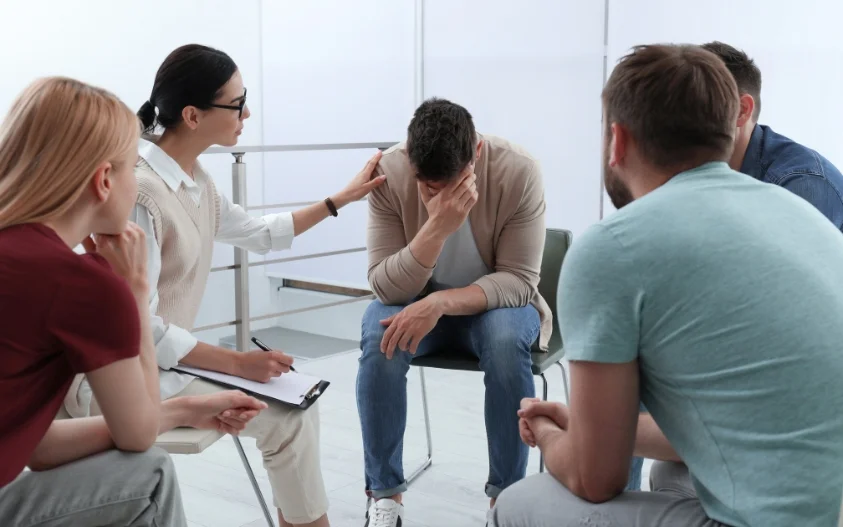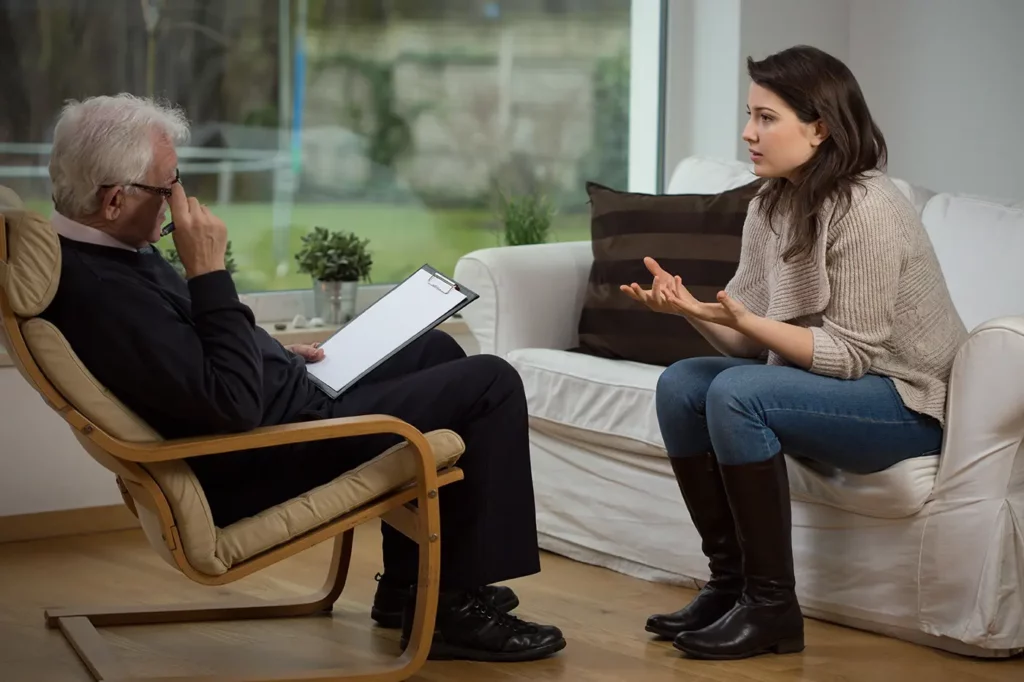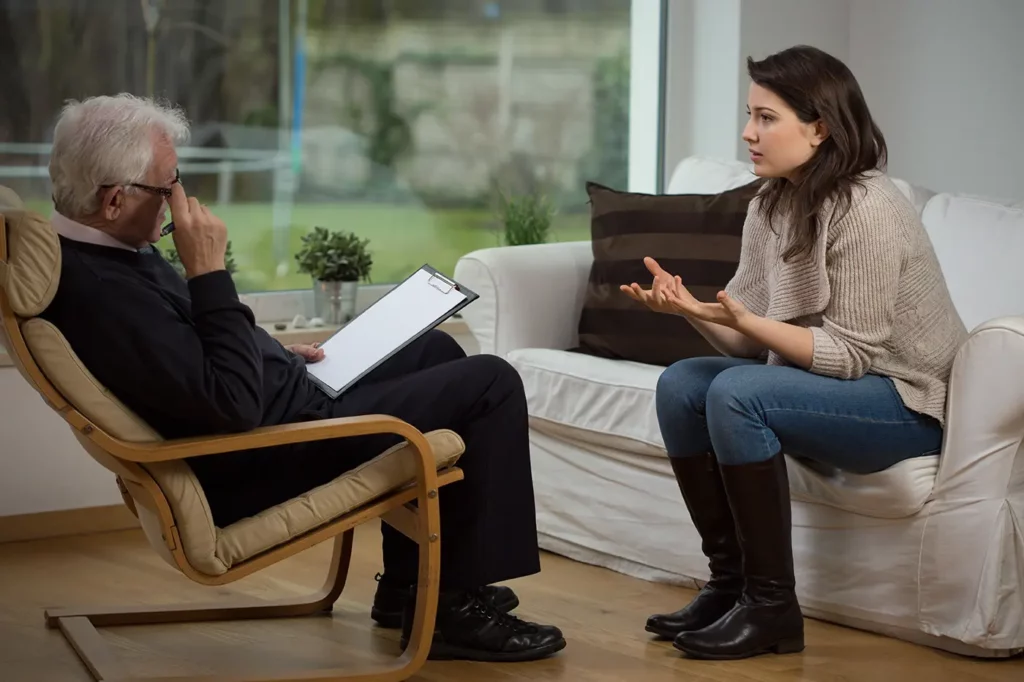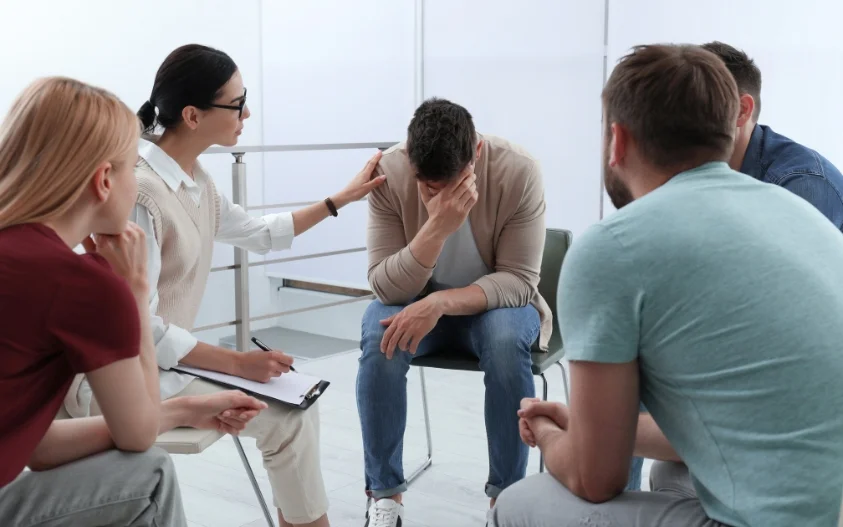24/7 Helpline:
(866) 899-221924/7 Helpline:
(866) 899-2219
Learn more about Medication-assisted Treatment centers in Courtland

Other Insurance Options

Health Partners

UnitedHealth Group

UMR

Magellan Health

BlueCross

Choice Care Network

Evernorth

State Farm

Group Health Incorporated

Regence

MHNNet Behavioral Health

Self-pay options

WellCare Health Plans

Medical Mutual of Ohio

Health Net

BHS | Behavioral Health Systems

Multiplan

Premera
Beacon

Cigna






Mental Health Center of North Central Alabama – Moulton Lawrence Counseling Center
Mental Health Center of North Central Alabama – Moulton Lawrence Counseling Center is a private reha...

Moulton Lawrence Counseling Center
Moulton Lawrence Counseling Center is a drug and alcohol rehab and counseling center in Moulton, Ala...

Prairie View – Outpatient
Prairie View – Outpatient is a private rehab located in Hillsboro, Kansas. Prairie View – Outpatient...

Highland District Hospital – Behavioral Health
Highland District Hospital – Behavioral Health is a private rehab located in Hillsboro, Ohio. Highla...

Family Recovery Services
Family Recovery Services represents a family of services offered by FRS Counseling, Inc. Although Be...

Family Recovery Services – SUD
Family Recovery Services - SUD represents a family of services offered by FRS Counseling, Inc. Altho...

Youth Contact – Baseline Street
Youth Contact – Baseline Street is a private rehab located in Hillsboro, Oregon. Youth Contact – Bas...

CODA – Hillsboro Recovery Center
CODA – Hillsboro Recovery Center is a private rehab located in Hillsboro, Oregon. CODA – Hillsboro R...

De Paul Treatment Centers – Outpatient Services
De Paul Treatment Centers - Outpatient Services is located in Hillsboro, Oregon. De Paul Treatment C...

LifeWorks – Walnut Street
LifeWorks – Walnut Street is a private rehab located in Hillsboro, Oregon. LifeWorks – Walnut Street...

Western Psychological and Counseling Services
Western Psychological and Counseling Services offers outpatient Mental Health and/or Substance Abuse...

Brian’s Safehouse
Brian's Safehouse is a place were men battling addiction can encounter the life-restoring powers of ...


























Community Services
Community Services is a private rehab located in Hillsboro, Missouri. Community Services specializes...

Scioto Paint Valley Mental Health Center
Scioto Paint Valley Mental Health Center provides help for drug addiction, alcoholism, and a variety...

Mission Teens – Ohio MBTC
Mission Teens - Ohio MBTC is a non-denominational Christian Discipleship located in Hillsboro, OH. M...

Family Recovery Services – Connections
Family Recovery Services - Connections represents a family of services offered by FRS Counseling, In...

Sequoia Mental Health Services
Sequoia Mental Health Services is a private rehab located in Hillsboro, Oregon. Sequoia Mental Healt...

Pacific Psychology Clinic
Pacific Psychology Clinic is a private rehab located in Hillsboro, Oregon. Pacific Psychology Clinic...

Ben Taub Hospital Behavioral Health
Ben Taub Hospital Behavioral Health is a private rehab located in Hillsboro, Texas. Ben Taub Hospita...



















